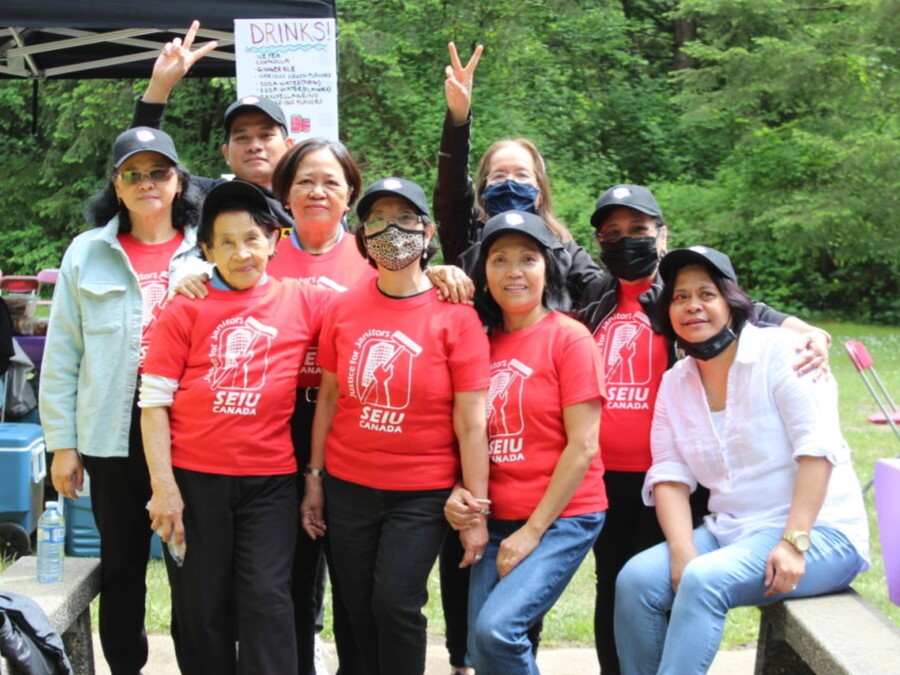SEIU Local 2 welcomes a report published this month by the Canadian Capital Stewardship Network (CCSN) entitled Protecting Our Most Valuable Assets: Investor Oversight of Responsible Real Estate Standards in the Context of Covid-19. With Covid-19 numbers on the rise this fall, this report and its recommendations are timelier than ever.
Property owners with billions of dollars of assets across Canada continue to rely on workers making minimum wages and without access to health benefits or paid sick days. This report and its recommendations point to a prevailing public discourse on essential workers like janitors during the pandemic, but with no consideration for workers’ lives by these real estate giants.
Last April, SEIU launched the Invisible to Essential campaign and has actively engaged the key stakeholders in the cleaning industry to do more to protect essential workers during the pandemic.
The CCSN report, published on November 10, 2020, examines policies and responses to the pandemic of ten of the major pension funds across Canada. which collectively “allocate $220 billion or 13.2% of their total portfolios to real estate.”
The findings in the report revealed that while large pension funds mention workers’ rights and working conditions in their investment policies, there is no proactive policies in place to mitigate the risks of Covid-19, which have left many frontline workers exposed to various health and safety risks. Relying on survey data provided by SEIU Local 2 and Acorn, the report urged building owners to do more to mitigate these risks through the following recommendations:
Property owners with billions of dollars of assets across Canada continue to rely on workers making minimum wages and without access to health benefits or paid sick days. This report and its recommendations point to a prevailing public discourse on essential workers like janitors during the pandemic, but with no consideration for workers’ lives by these real estate giants.
Last April, SEIU launched the Invisible to Essential campaign and has actively engaged the key stakeholders in the cleaning industry to do more to protect essential workers during the pandemic.
The CCSN report, published on November 10, 2020, examines policies and responses to the pandemic of ten of the major pension funds across Canada. which collectively “allocate $220 billion or 13.2% of their total portfolios to real estate.”
The findings in the report revealed that while large pension funds mention workers’ rights and working conditions in their investment policies, there is no proactive policies in place to mitigate the risks of Covid-19, which have left many frontline workers exposed to various health and safety risks. Relying on survey data provided by SEIU Local 2 and Acorn, the report urged building owners to do more to mitigate these risks through the following recommendations:
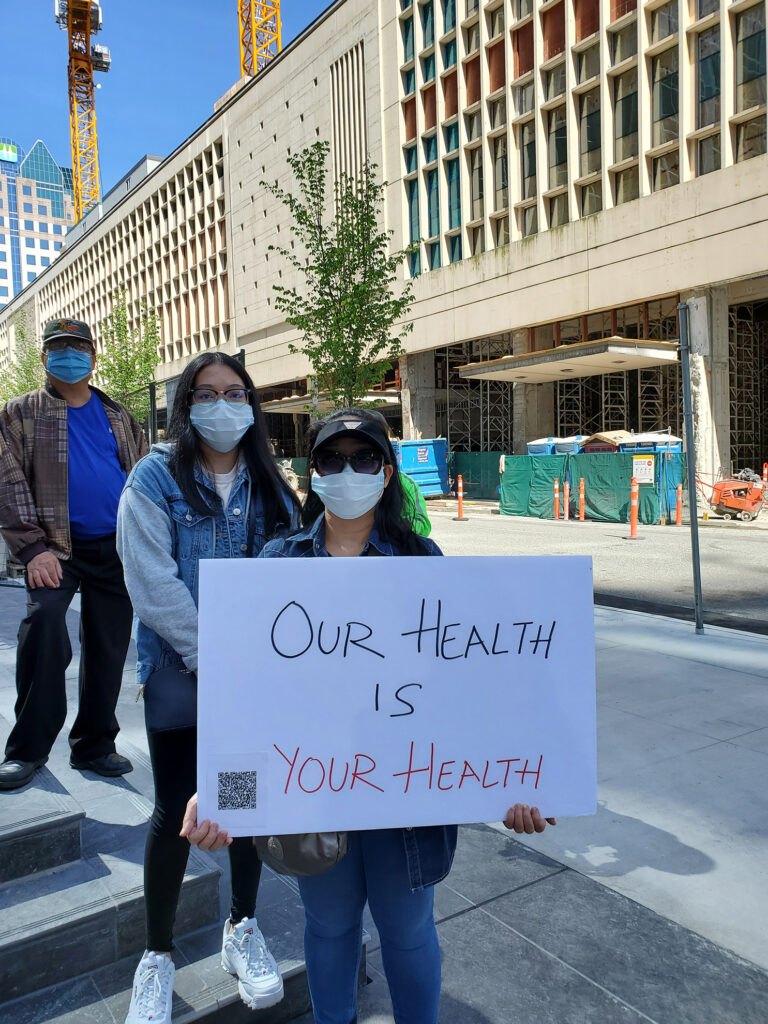
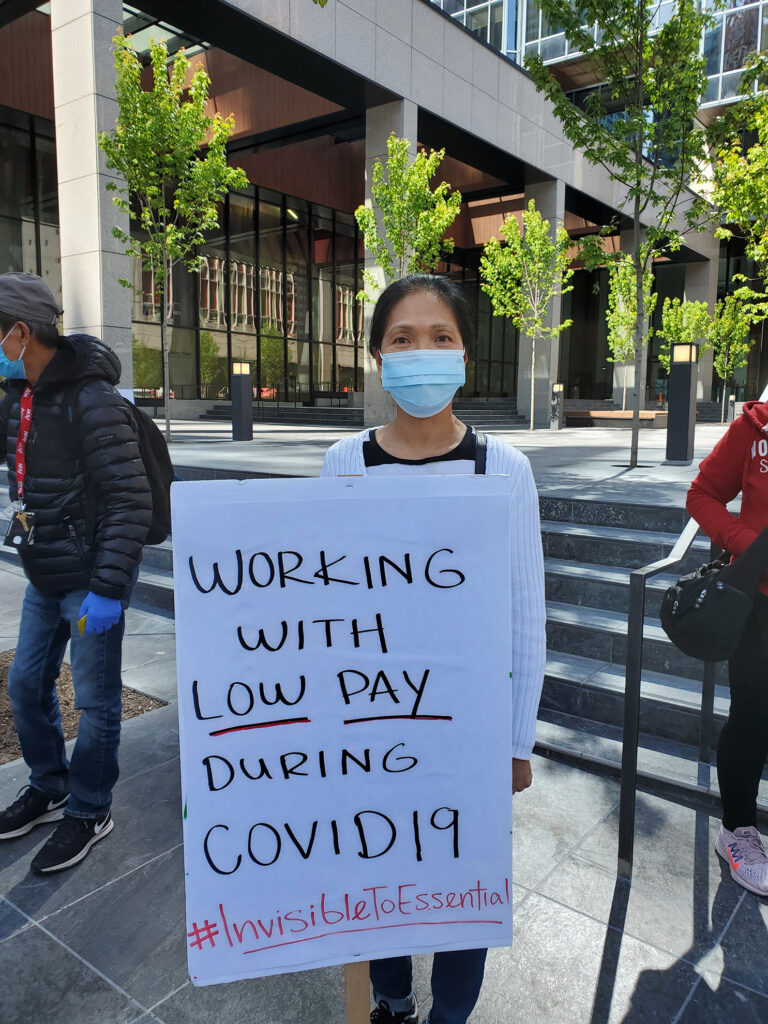
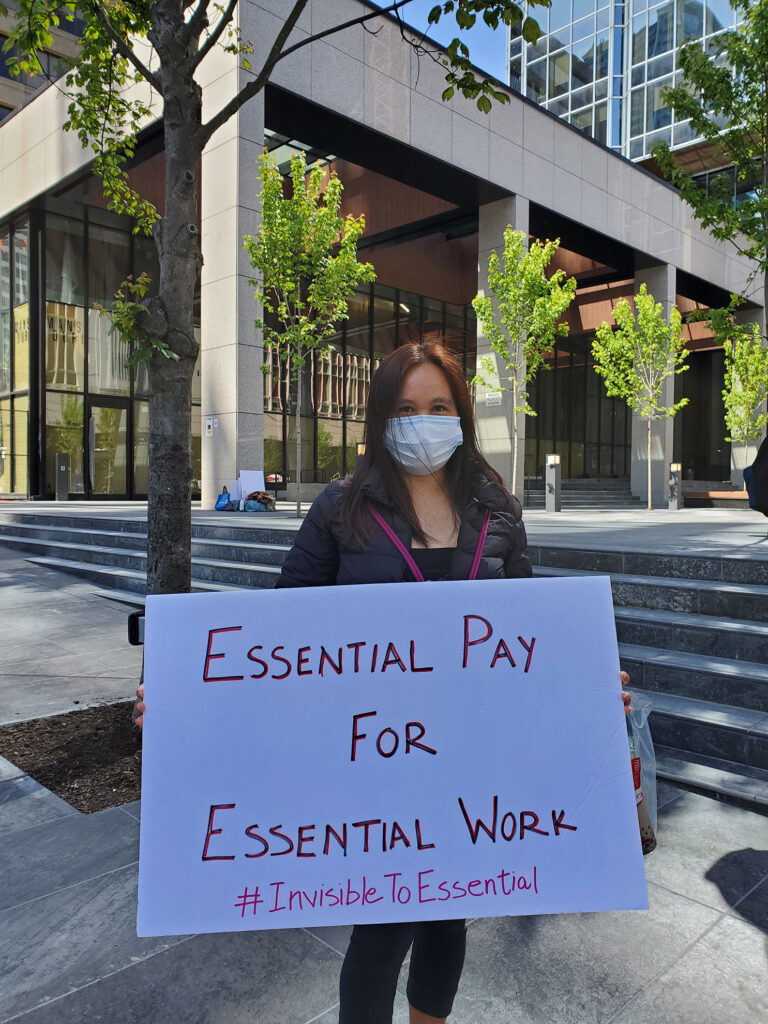
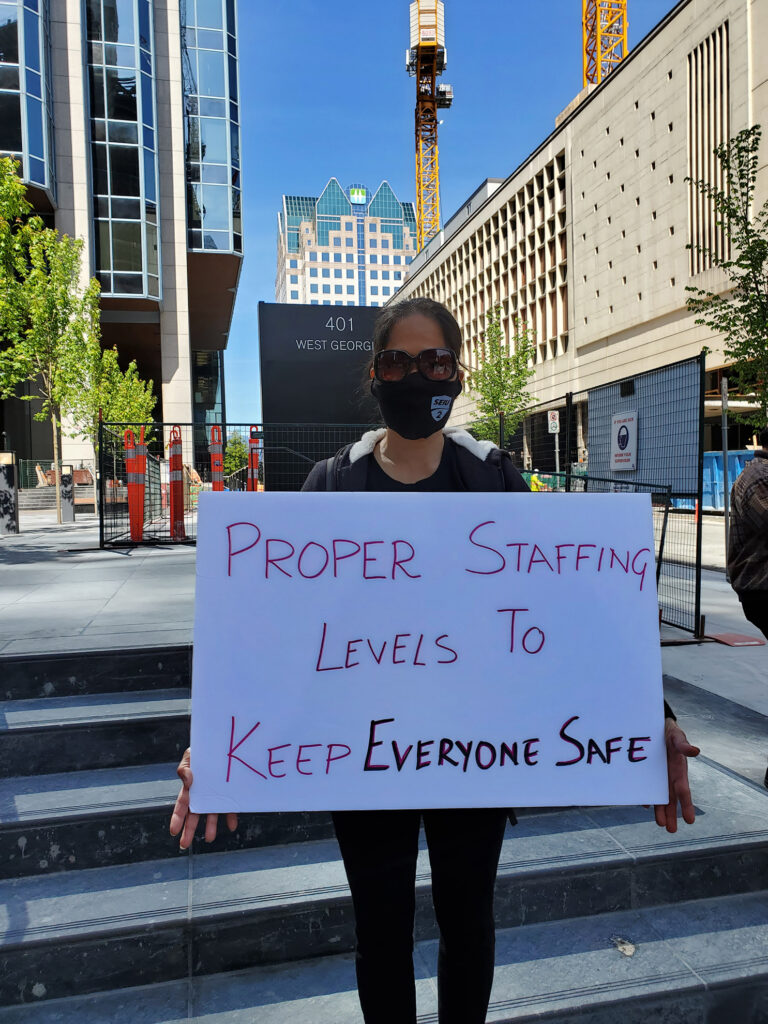

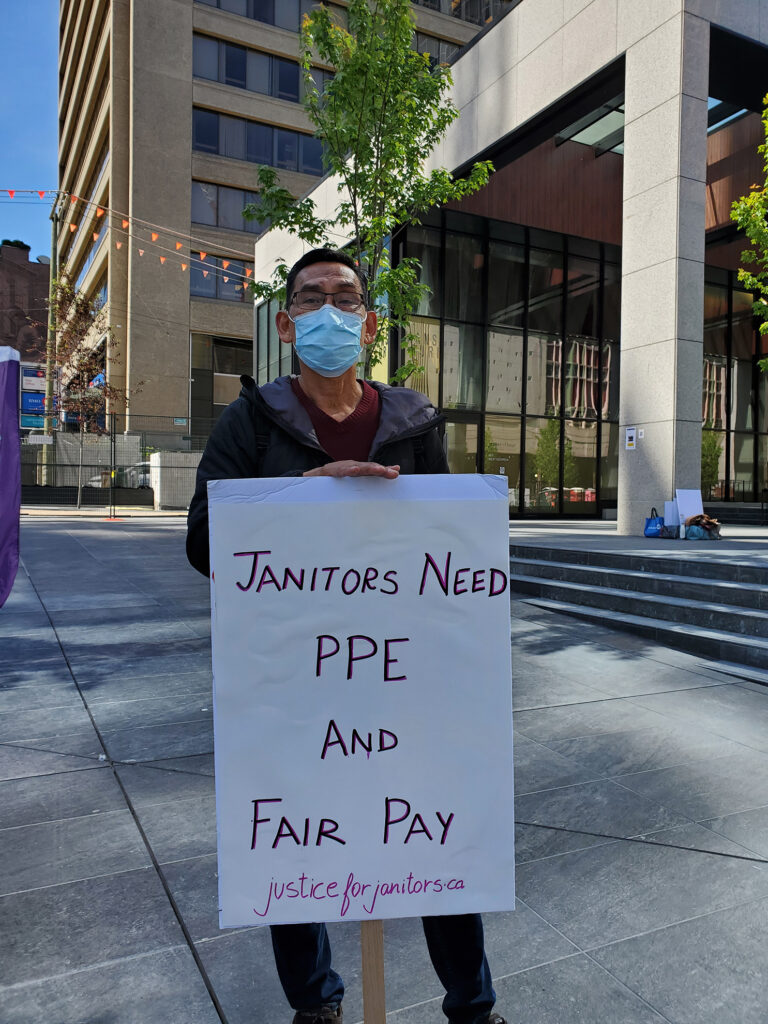
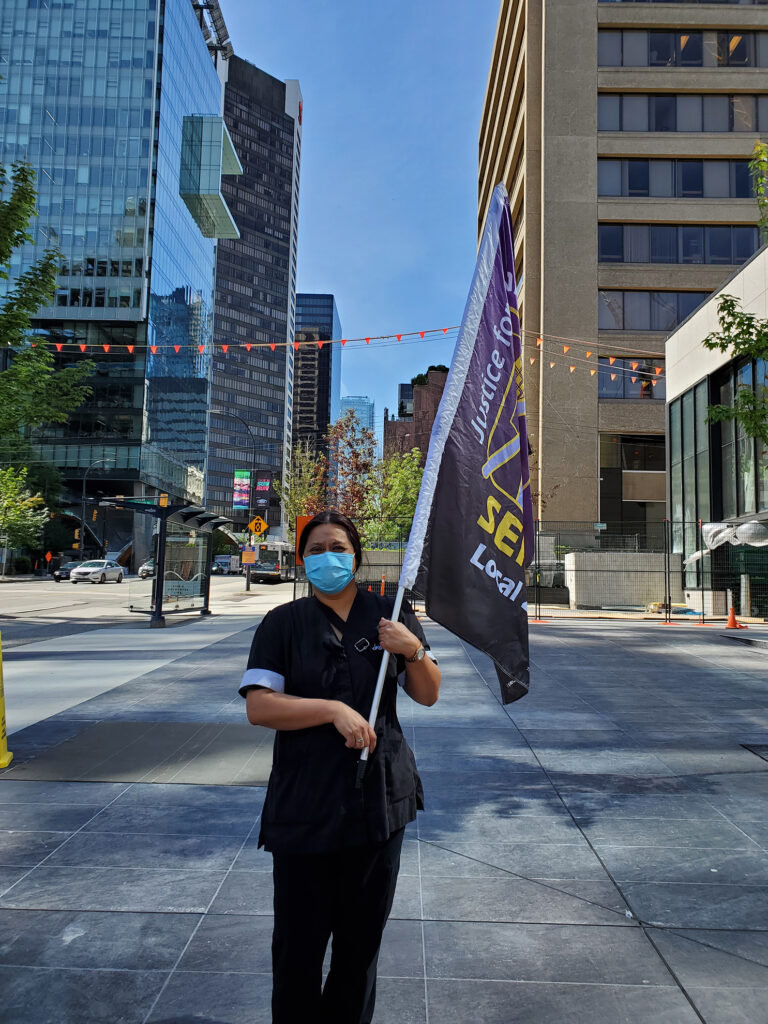
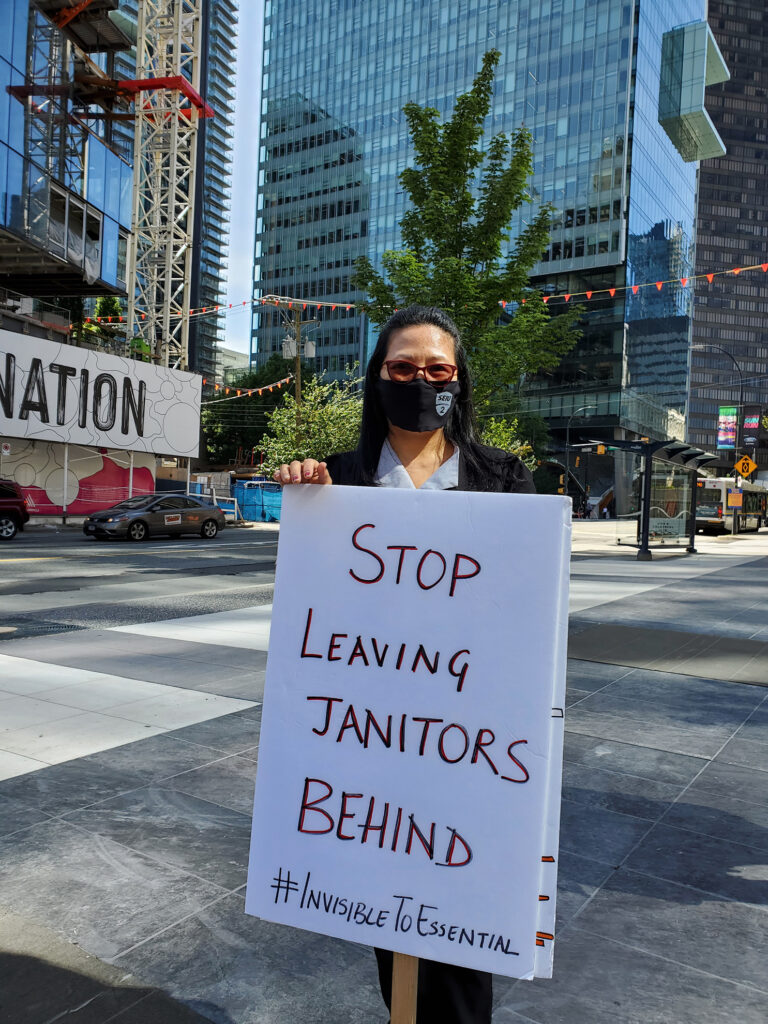
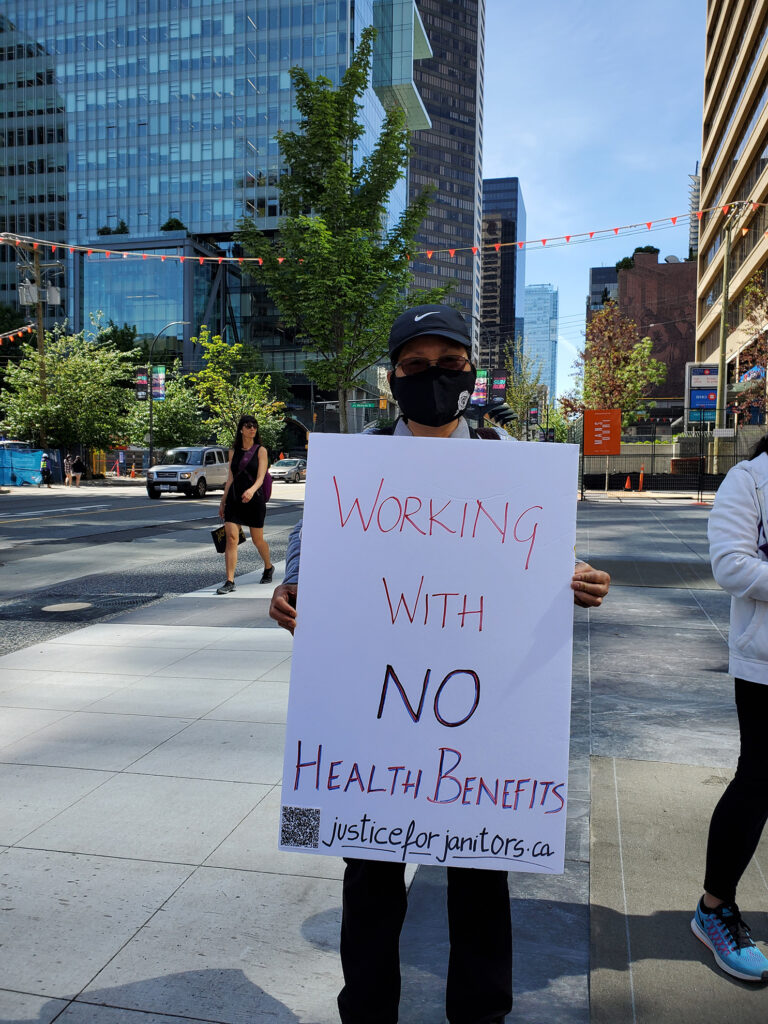
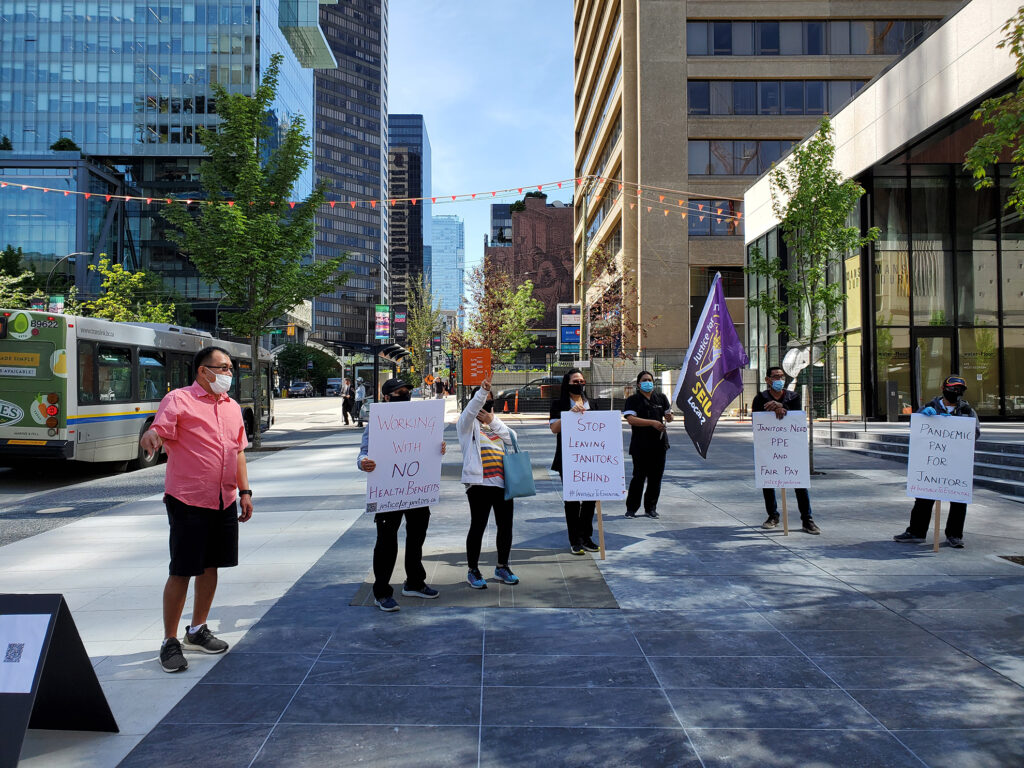
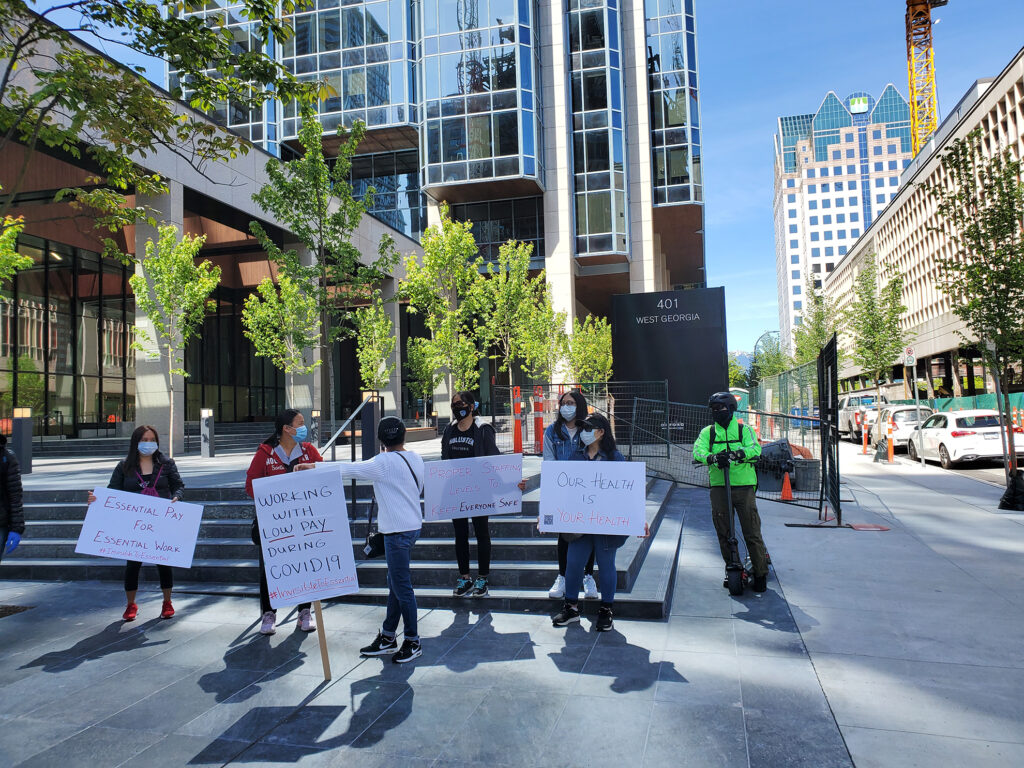
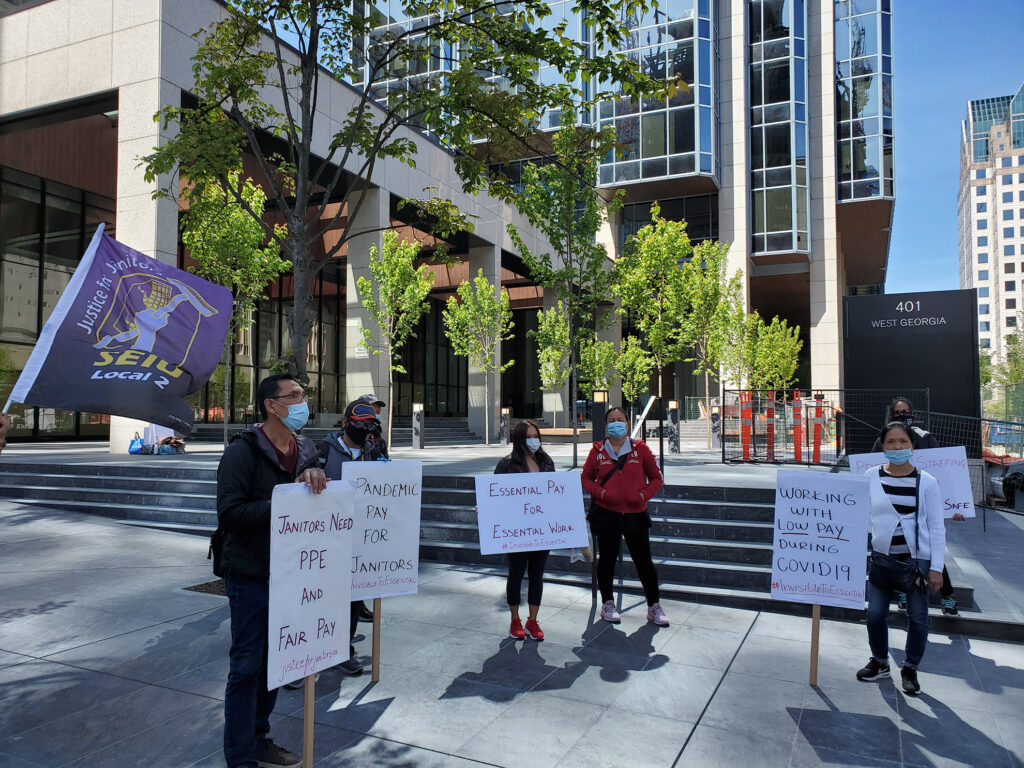
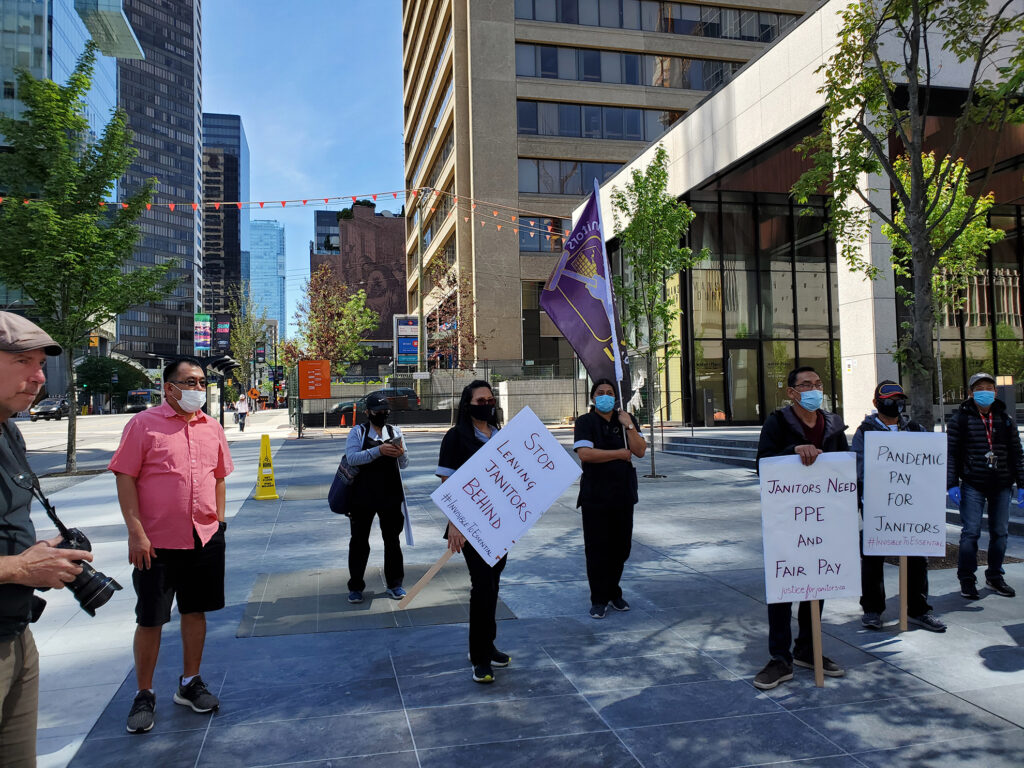
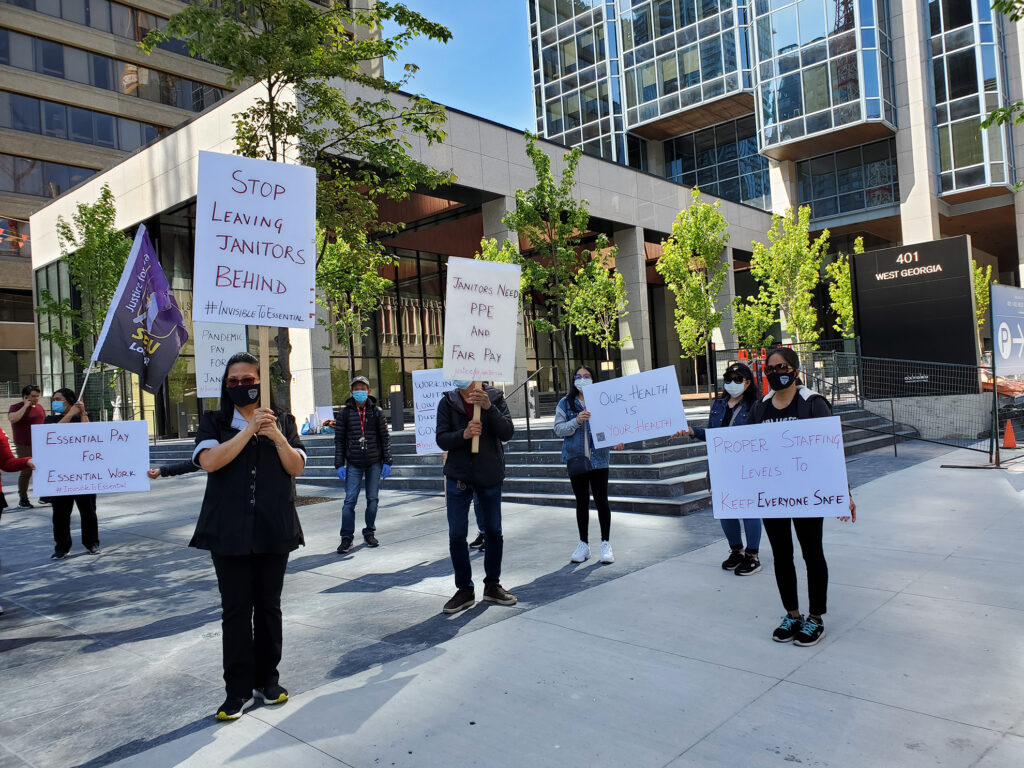
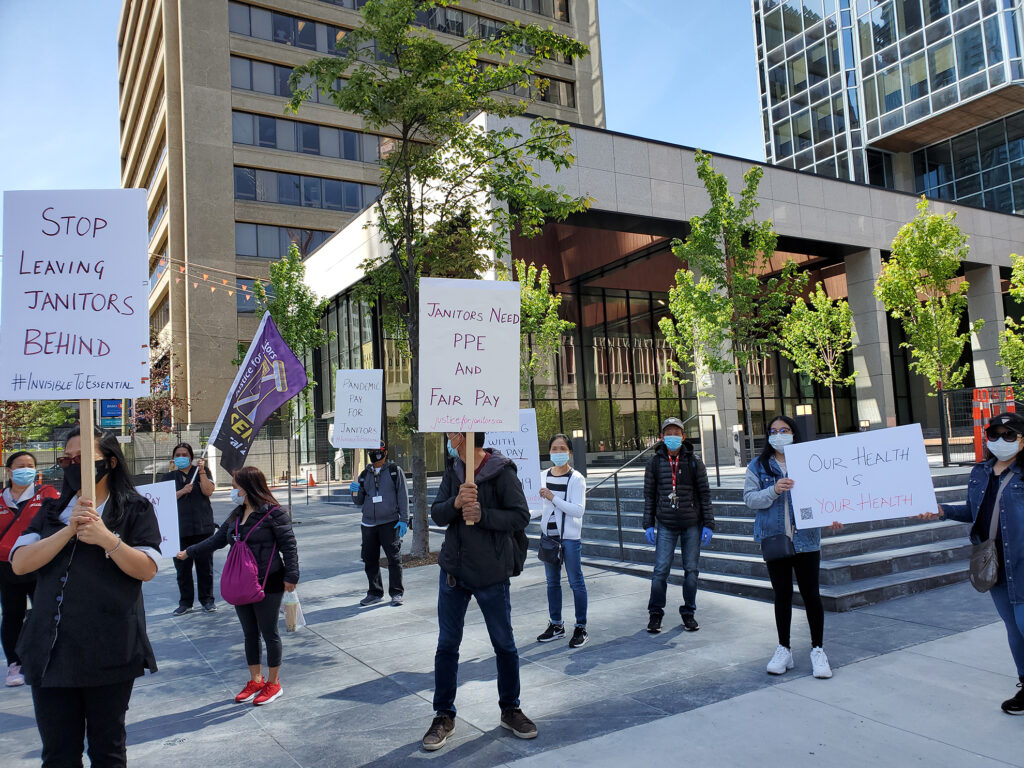
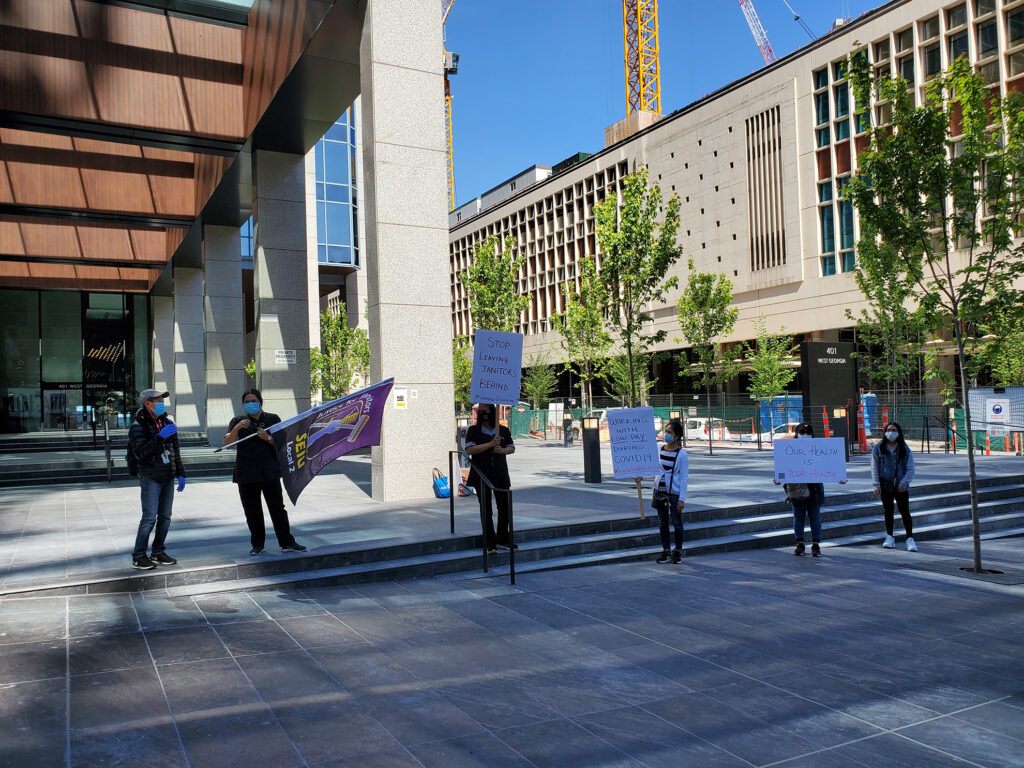
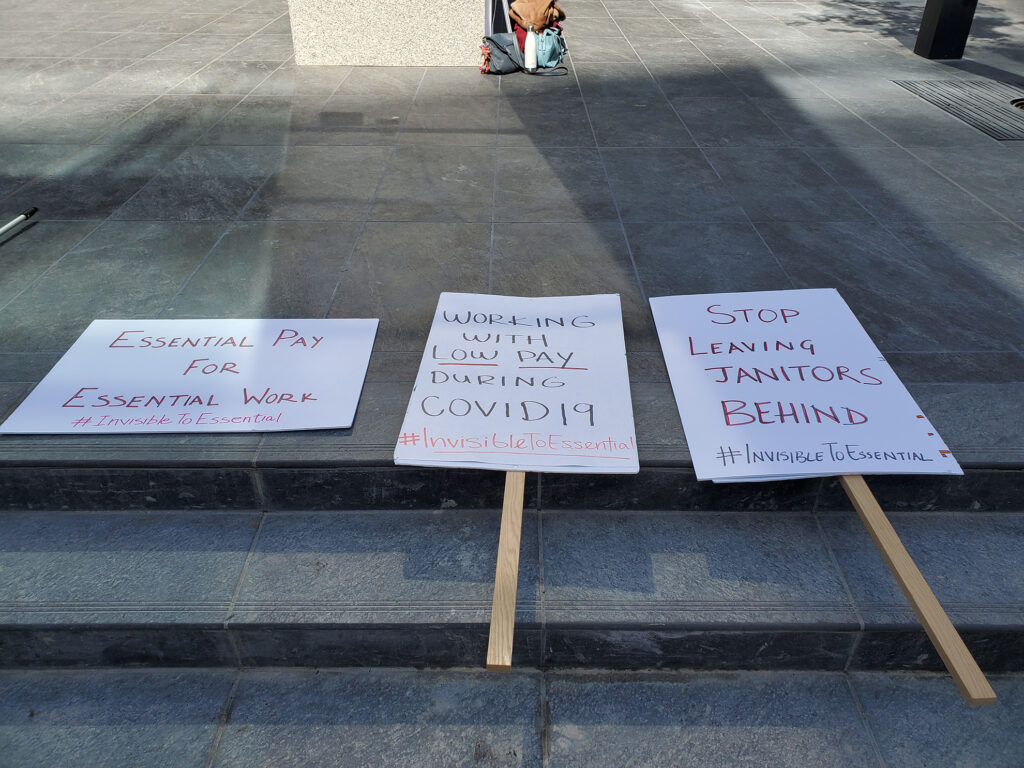
RECOMMENDATION 1: Responsible property owners and their real estate managers should ensure a stable continuation of income and benefits in times where contracted workers must stay home due to illness, quarantine, or caring for a sick family member. Efforts to limit financial impacts should not be made at the expense of workers’ rights and welfare.
RECOMMENDATION 2: Responsible property owners and their real estate managers should ensure a safe working environment across their buildings, for employees and contractors. This includes limiting employee exposure to COVID-19 in the workplace through ensuring appropriate staffing levels, establishing personal protective measures and environmental measures. To achieve this, responsible property owners and their real estate managers should establish mechanisms for workers to safely and independently raise concerns without fear of negative repercussions and play an active role in adapting systems to ensure their safety.
RECOMMENDATION 3: Responsible property owners and their real estate managers should draw upon and enforce policies, such as responsible procurement policies or responsible contractor policies (RCPs), to ensure that contractor practices promote operational efficiency and respect for workers’ fundamental rights.



